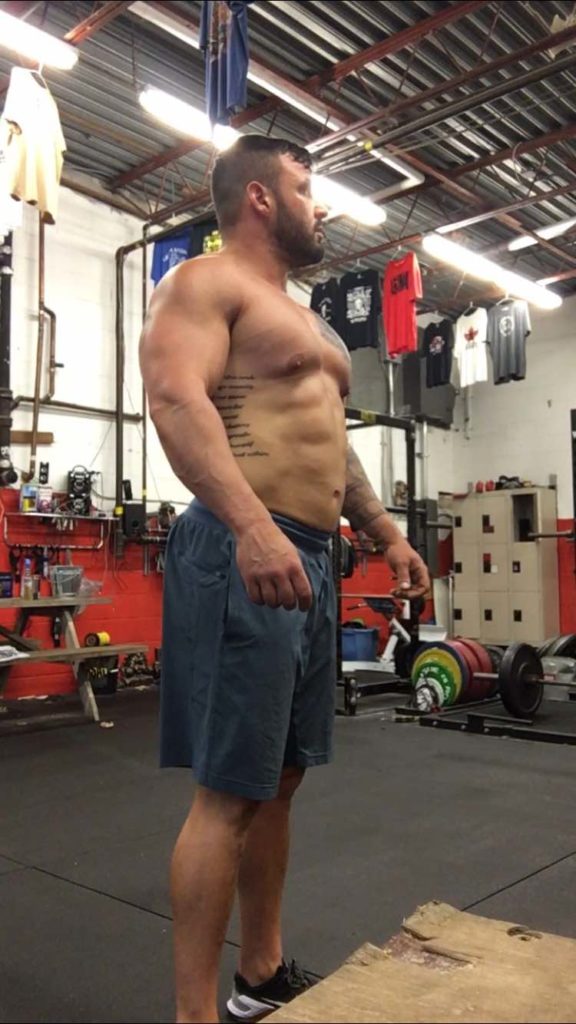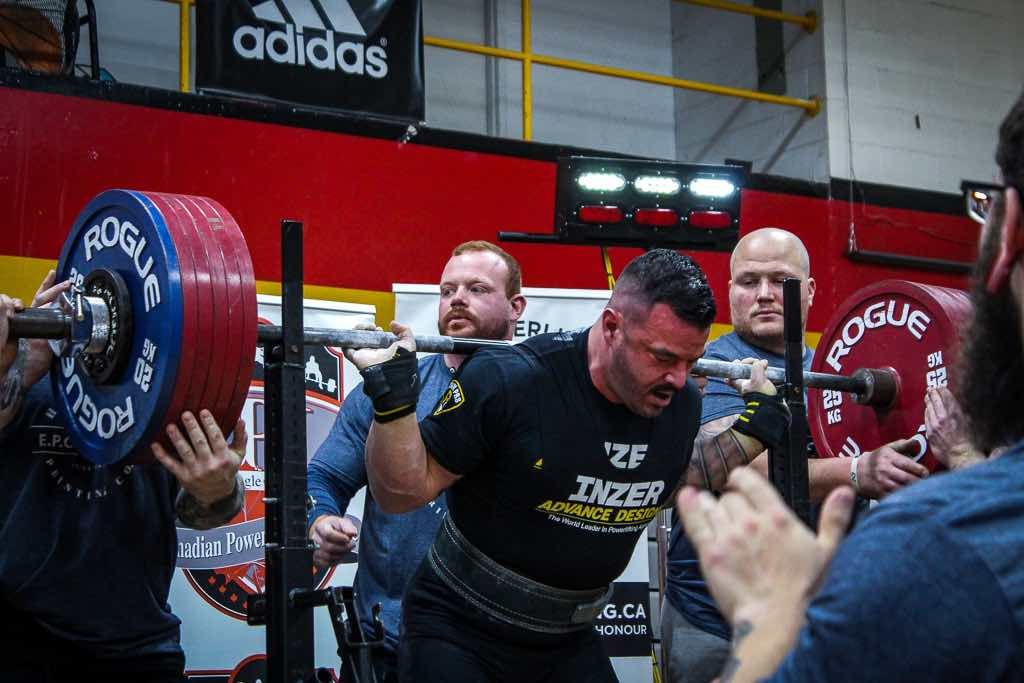
10 Dec Silence Your Inner Eeyore
By Paul Oneid
So, you want to make a change. You want to improve your life in some way. First of all, congratulations on beginning the process of taking control. That being said, the decision to make a change is something that takes minimal effort. In the words of the immortal Earl Simmons, (the artist formerly known as DMX) – “Talk is cheap, motherf****r.” Until you put your words into action, you’re not going to accomplish anything. Actions speak louder than words.
Change is something that the human organism tries to avoid at all cost. Its goal is homeostasis or maintenance of the status quo. It is biologically wired in this fashion to ensure our survival and the ability to pass on our genetics. Change of any kind is “expensive” regarding biochemical resources, so the body and the mind fight us every step of the way. As people, there are countless roadblocks that we create in our minds to stop us from starting. What can we do to subvert these instincts and set ourselves on a trajectory towards success?
The Biggest Offender – The Perfectionist Fallacy
The Perfectionist Fallacy is essentially the dismissal of a realistic solution to a problem even if the ideal solution isn’t possible. A simple example of this would be if an athlete were to get a minor injury that impacted their ability to train appropriately for their sport, they would skip training entirely because they couldn’t do it the way they wanted to. This may seem silly from the outside looking in, but we do it all the time. “I can only get to the gym for a 20-minute workout today, so I’ll just go tomorrow,” or “I can’t find the shirt I want to wear so I won’t go out with my friends tonight.” The reality in both situations and all cases for that matter is something always better than nothing. A 20-minute workout is better than sitting on the couch and a night out with friends will usually be fun regardless of what you are wearing. Recognize the human mind’s propensity towards making excuses and get out of your way. It doesn’t have to be perfect to be beneficial.
The other piece here is that starting something will typically result in finishing it. “I only want to do some light conditioning today.” So, you get on a machine or go outside, and once you start, you’re more likely to ramp it up because “I’m already here. I may as well.” Just starting something is a dopamine rush that feels good to us and over time we will want that more and more. This is a big part of how we go about forming habits.
 Control
Control
It might not be perfect, but you can control it. We know that when we are trying to find a solution to a problem, we must control the variables. When faced with situations in which the variables are primarily outside of our control, our psychology will work against us. Our mind will act in a way to preserve the survival instincts of the body. With the holidays coming up, this could not be more evident. Christmas parties, family, dinners, get-togethers, etc. all limit your ability to control your caloric intake – “I’ll start my diet in January.” So, instead of trying to eat according to a plan 80-90% of the time and mitigating some weight gain over the holiday season, you “start” your diet at a heavier weight, having dug yourself a hole by over indulging over the holidays. So, for the sake of convenience, you made your goal harder to attain.
We must retake control over the situation to be successful. You have ten get together within the next four weeks? That’s four meals, out of a possible 140, assuming you eat five meals per day, this means if you eat according to a structured meal plan for the remaining 130 meals, you would be 97% compliant to a diet! It doesn’t matter what diet you are following, but if you are 97% compliant, you’ll be hard-pressed to self-sabotage enough with that 3 % that you aren’t. Look at problems objectively and realize that you genuinely have more control than you initially perceive. This is true of MOST situations in life.
Plan – “Decrease the Reach”
It is a well-known idiom that “if you fail to plan, you plan to fail.” Well, in the situation of habit-forming, this could not be truer. Again, your mind and body will fight tooth and nail to prevent you from change. So, how can we make our planning more effective? We need to “Decrease the Reach.” It is common practice when trying to break habits that we make them harder to accomplish. Take TV watching as an example. If you want to watch less TV, increase the difficulty by which you access the TV: Put the remote in a drawer and take the batteries out, unplug the TV, etc. The more steps required to watch TV the less you will want to do it.
When forming habits, we must do the reverse. In keeping with the scenario above, we know that we have ten meals unaccounted for this month. The first step will be to ensure that we have the remaining 130 meals prepped and ready to eat. This can be done through weekly meal prep. Having your meals ready will make it easier to have them with you, or accessible when you need them. Then the easy part, enjoy your time with family and friends. In almost all instances, a few untracked meals will not derail your progress and impact your ability to achieve your goals. Perhaps the only exception would be bodybuilding contest prep. If your barrier is being able to train first thing in the morning, get all your gear, clothing and nutrition ready and packed the night before (see MDLP’s article for more on this HERE). No prep in the morning means you can probably stay in bed a few moments longer and you’re all set to wake up, eat and leave the house without any thought. Decrease the number of steps needed to accomplish the desired outcome and bring that goal within your reach.
Set Your Timer
Once you’ve taken control and planned out your steps, you’re on pace to start. The final piece that typically goes ignored is a timeline. When we have an end date by which we plan to achieve our goal, it makes the habit more critical. When we value our actions, and they have meaning, we are more likely to continue to do them. “I want to compete in 16 weeks.” Inherently, having a deadline will make us train harder. This is one of the causes of that post-meet depression – we have nothing to aim for anymore.
Now, the timeline is a great motivator, but it serves a second master. By putting pressure on yourself to act in a certain way, the actions are ingrained in your daily life. An example here would be a morning walk. If you go for a long walk every morning for fasted steady state cardio for 16 weeks to lose weight, going for a shorter one daily once the diet is done merely to maintain your health just becomes part of your daily schedule.

Your body is going to fight you every step of the way along your journey towards change. It doesn’t matter if that change is mild, or drastic – If it threatens the status quo, it is expensive for your body. That sad little donkey in your head will pipe up and tell you to slow down, stop and return to normal. Being aware of this subconscious survival mechanism will allow you to fight back against it. Be self-aware, take control, plan and set a deadline. Once you start, you’ll likely push to the finish and be a better person for it. Don’t let Eeyore rule your life!
To read more from Paul and to follow his off-season training, CLICK HERE. While you’re on the site, be sure to check out the brand new Team PRS shirts and swag in the PRS Store.
Paul Oneid
Latest posts by Paul Oneid (see all)
- A Proposition for a Paradigm of Planning Your Personal Periodization - March 4, 2019
- Paul Oneid –> Off-Season | Feet Up Bench PR and Some Squats - March 1, 2019
- Paul Oneid –> Off-Season | A bit of everything - February 21, 2019





Sorry, the comment form is closed at this time.